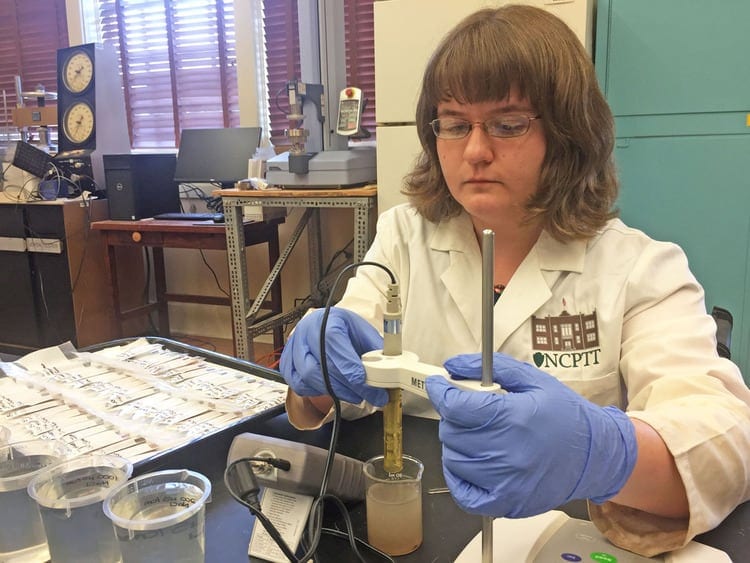Abigail Poe of Natchitoches, a spring 2020 graduate in biology, was recognized for a research project completed while working with the National Center for Preservation Training and Technology and the National Park Service. The award is presented annually to individuals from around the world, typically those who are students or in an early career, based on a unique project conducted in the field of preservation and/or conservation.
Poe has been working with the NCPTT/NPS for the past year, continuing a project that began when specialists discovered that RoundUp Weed and Grass Killer and other herbicides cause historic stone and masonry to deteriorate. Poe studied alternative solutions and tested how alternate herbicides affect historic brick, concrete and granite, materials commonly found in historic monuments, buildings and other features.
“Through results of this study, we hope to identify one or more herbicides that can be used for weed management at historic sites and landscapes without causing damage to the surrounding structure,” she said.
“This year happened to be a double recognition from two organizations hosting a joint conference, the Association of Preservation Technology International and the National Trust for Canada,” Poe said. “Every year, they choose a few individuals to recognize for their research in the field of preservation, and recipients come from across the world. They have a process they invite individuals to go through that includes abstracts, personal statements and interview questions to screen potential recipients.”
As part of the award, Poe will receive a stipend for travel and expenses to a conference and awards program, deferred until safe to do so, and membership in APTI. She will present at a conference geared specifically for researchers and professionals in the field with a mentor to guide her through the process and network with individuals working in research in that industry. She will also be able to attend next year’s conference as an APTI award recipient alumna.
Through the project, Poe learned much about research and communication.
“Early on, I focused on coming up with a design for this study,” she explained. “I performed literature searches and spoke to other institutions and organizations about their research on the effectiveness of herbicides in treating weeds and other vegetation to identify which herbicides to use. After that, my focus shifted to lab work. I have learned how to prepare materials including using a table saw and how to use lab equipment to simulate weathering of the treated samples and evaluate the samples’ chemical and physical properties like color, salinity and surface mapping.”
She then focused on collecting data and interpreting data to determine effects of herbicides on samples and shared the results.
“These results will be used to initiate a larger scale testing in a natural setting and develop a recommendation for weed management around historic features,” she said. “To have been involved from the initial stage until now has taught me a lot about the research process in terms of accomplishing the various stages of a project and seeing how they integrate and ultimately connect to real-world solutions.”
“I am truly grateful to have been given the opportunity to be a part of this study,” Poe said. “My mentors, Jason Church, Mary Striegel and Debbie Smith, along with everyone else at NCPTT, have been so kind and welcoming. They have taught me a lot about their projects and preservation topics in general and helped me whenever I have had questions or problems.
Anyone interested can find out more about Poe’s project and other ongoing projects at the NCPTT website, visit https://www.ncptt.nps.gov/ or find them on Facebook.























